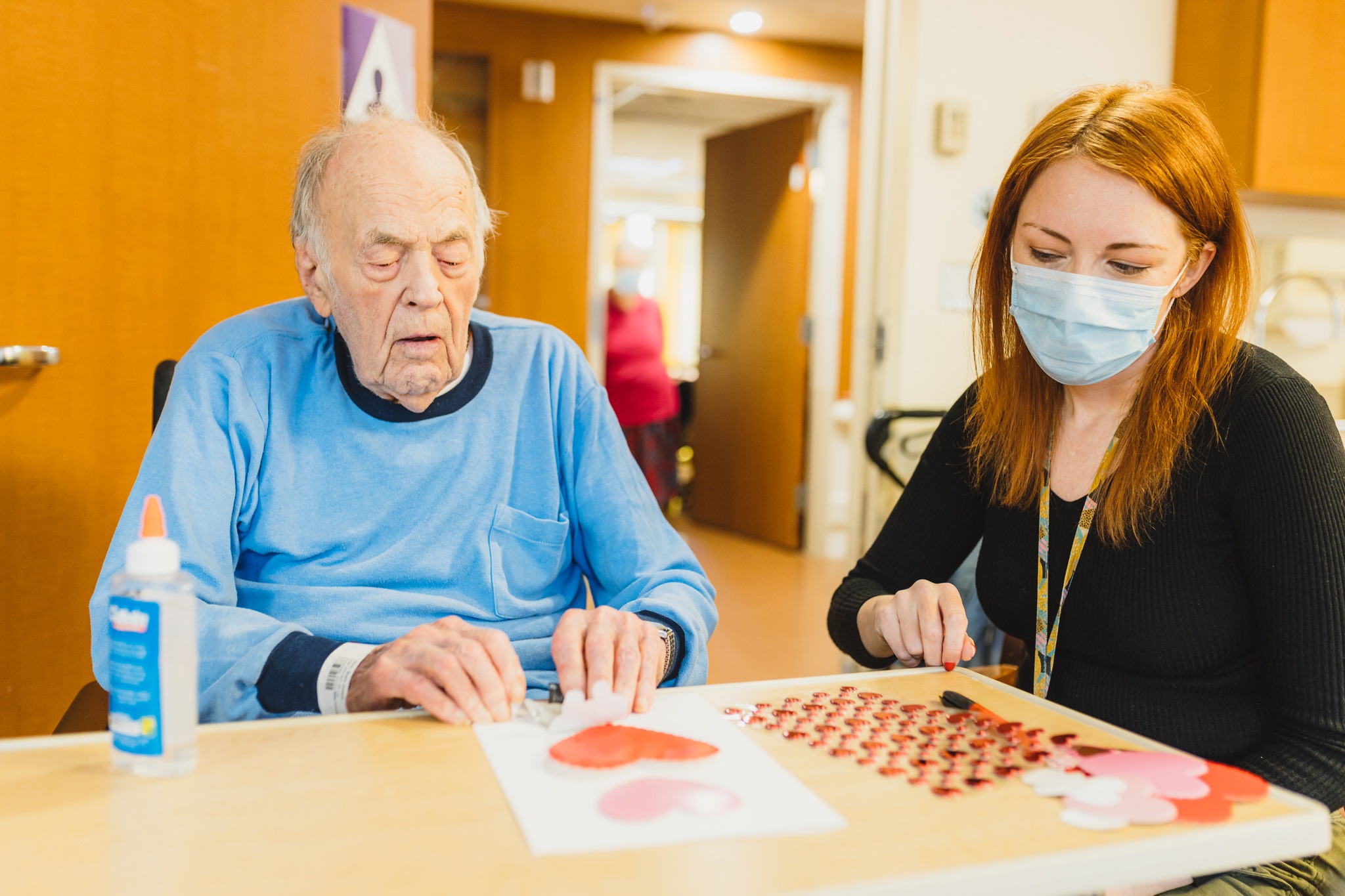
Preventing dementia through leading edge e-learning
Thousands of Canadians are flocking to a free e-learning lesson developed by Hamilton Health Sciences (HHS) psychiatrist and researcher Dr. Anthony Levinson for leading-edge information on reducing their risk of dementia. Levinson, director of McMaster University’s division of e-learning innovation, developed this highly-engaging, evidence-based e-lesson with that team and Dr. Richard Sztramko, a former HHS geriatrician now in British Columbia.
“Feedback from visitors indicates that they find the e-learning relevant, easy to understand, useful, and beneficial.” — Dr. Anthony Levinson
Levinson is on the leadership council for the Geras Centre for Aging Research, a research institute at HHS that’s affiliated with McMaster University, and Sztramko is a member.
Levinson is also a psychiatrist at HHS Juravinski Hospital and Cancer Centre, providing care to patients who are being treated for medical reasons such as cancer. Many of his patients are older adults. He’s a professor in McMaster’s Department of Psychiatry and Behavioural Neurosciences as well as the John Evans Chair in Health Sciences Educational Research.
An expert in designing technology-enhanced learning for patient education, Levinson and team were awarded federal funding from the Public Health Agency of Canada to evaluate this online resource to educate Canadians about brain health and preventing dementia. Forty per cent of dementia cases worldwide could be preventable, according to the Alzheimer Society of Canada.
“The dementia risk reduction e-lesson developed by Dr. Levinson and his team is an excellent example of how evidence-based research translates into practical, hands-on support for Canadians interested in improving their brain health and reducing their risk of dementia,” says Dr. Alexandra Papaioannou, executive director of Geras. “Also, the lifestyle changes it recommends have the potential to prevent dementia and save the health-care system millions of dollars.”
Learning about risk reduction
This e-lesson’s development was at the heart of a research project that aims to educate Canadian adults of all ages about keeping their brain healthy and reducing their risk of dementia, a broad term that can include memory loss, challenges with day-to-day function, and difficulties with thinking, problem solving and language. Dementia is caused when the brain is damaged by diseases, like Alzheimer’s, or a series of strokes.

The e-lesson features tips from an animated Dr. Anthony Levinson.
The e-lesson is housed on the McMaster Optimal Aging Portal and takes about 35 minutes to complete. It features an animated image of Levinson offering information to help people make positive lifestyle changes and lower their risk of dementia. Visitors can also find articles about ways to reduce risk and take an interactive quiz to test their knowledge. And they can subscribe to receive email messages with recommendations for promoting brain health, based on recent research.
“We’re targeting adults of all ages, because it’s never too early or too late to make positive changes aimed at brain health and risk reduction.” — Dr. Anthony Levinson
Phase one of this project launched in the spring of 2023 with 500 recruits from across Canada taking part in a four-week trial that involved completing the e-lesson, receiving follow-up emails on brain health, taking surveys to test their knowledge level and what they learned, and reporting if they were motivated to make positive lifestyle changes.
Phase two, which launched last fall, focused on promoting the e-lesson and email series to the public. Since then over 250,000 people have visited the site, with over 22,000 signing up for the series of follow-up emails.
“Feedback from visitors indicates that they find the e-learning relevant, easy to understand, useful, and beneficial,” says Levinson.
Six ways to promote brain health
The World Health Organization and others have examined the evidence and made recommendations for several ways in which people can promote brain health and reduce the risk of developing dementia. Levinson covers these healthy lifestyle behaviours in the e-lesson:
- Be physically active and manage your weight
- Eat a healthy diet
- Look after your blood vessel health
- Stop smoking and drink less alcohol
- Stay cognitively and socially active
- Look after your hearing and other medical conditions and avoid medication side effects. Conditions such as COPD, heart failure, and sleep apnea can affect the brain, and certain medications have side effects impacting memory.
People who practice two to three of these healthy lifestyle choices have a 37 per cent lower risk of developing Alzheimer’s disease compared to those with one or none of these healthy behaviours, says Levinson. For people with four or five healthy behaviours, their risk was 60 per cent lower in some studies.
Never too early or late for positive changes
Phase 1 of this project was launched in March 2023 with a four-week randomized control trial of 500 people ranging in age from their mid-20s to their 80s, with about 45 per cent between the ages of 55 and 74. About 60 per cent were female.
“We were aiming for a slightly larger female demographic because the risk of dementia is higher in women,” says Levinson.
Participants were divided into two groups, with the intervention group receiving the dementia prevention e-lesson and follow-up emails, and the control group focusing on mild cognitive impairment, with an e-lesson and emails. With mild cognitive impairment there’s some mental decline but it’s not as severe as dementia.
Participants in both groups completed a survey before starting the trial to gauge their knowledge of dementia and lifestyle habits, such as diet and exercise. They took a second survey at the end of the four-week trial to re-test their knowledge and see if they were inspired to make any positive lifestyle changes. A final survey two months after the trial ended checked to see if they had retained what they learned and sustained or improved any positive lifestyle changes. Data from the study is currently being analyzed.
“We’re targeting adults of all ages, because it’s never too early or too late to make positive changes aimed at brain health and risk reduction,” says Levinson.
Other lessons developed by Levinson and his team, and available on the McMaster Optimal Aging Portal include Delirium: Is your loved one at risk?, Anxiety disorders, Walking speed. Is it a new vital sign?; Osteoarthritis and exercise; Social isolation. Are you at risk?, and Changing gears — making a plan to retire from driving.
Did you Know?
- The Alzheimer Society of Canada estimates that more than 733,000 people in Canada are living with dementia.
- By 2030, nearly 1 million people in Canada could live with dementia.
- Ontario will have a 202 per cent dementia increase between 2020 and 2050, with Ontario having the most new cases. This will include 1.5 million new cases of Alzheimer’s, 680,000 new cases of vascular dementia, and 780,000 new cases of other types of dementia.
- Studies have shown that the presence of depression nearly doubles the risk of developing dementia.
- Studies have also shown a correlation between hearing loss and the likelihood of developing dementia. People with moderate hearing loss are at three times the risk of developing dementia.
- People living with dementia are about five times more at risk of falling.





